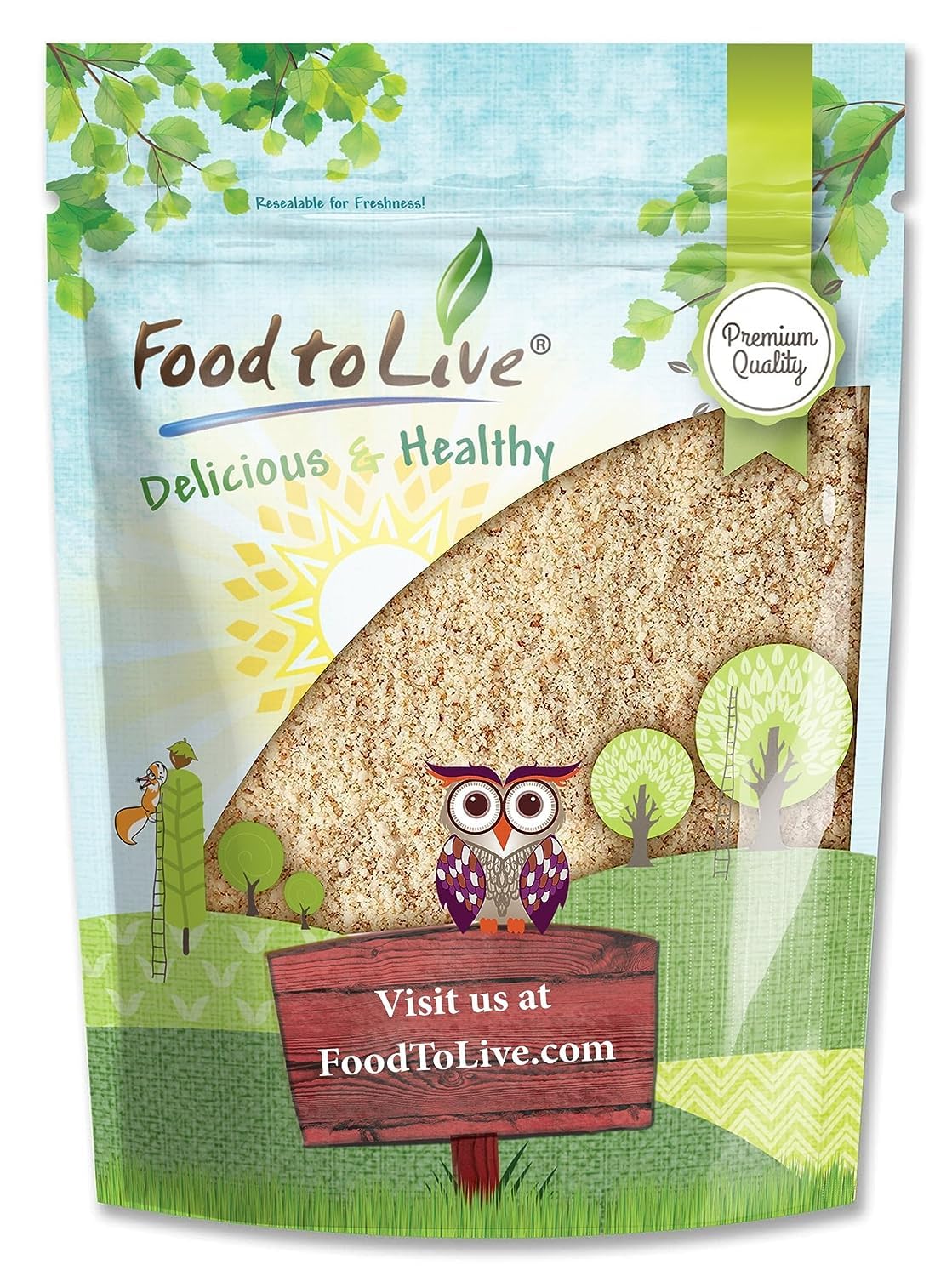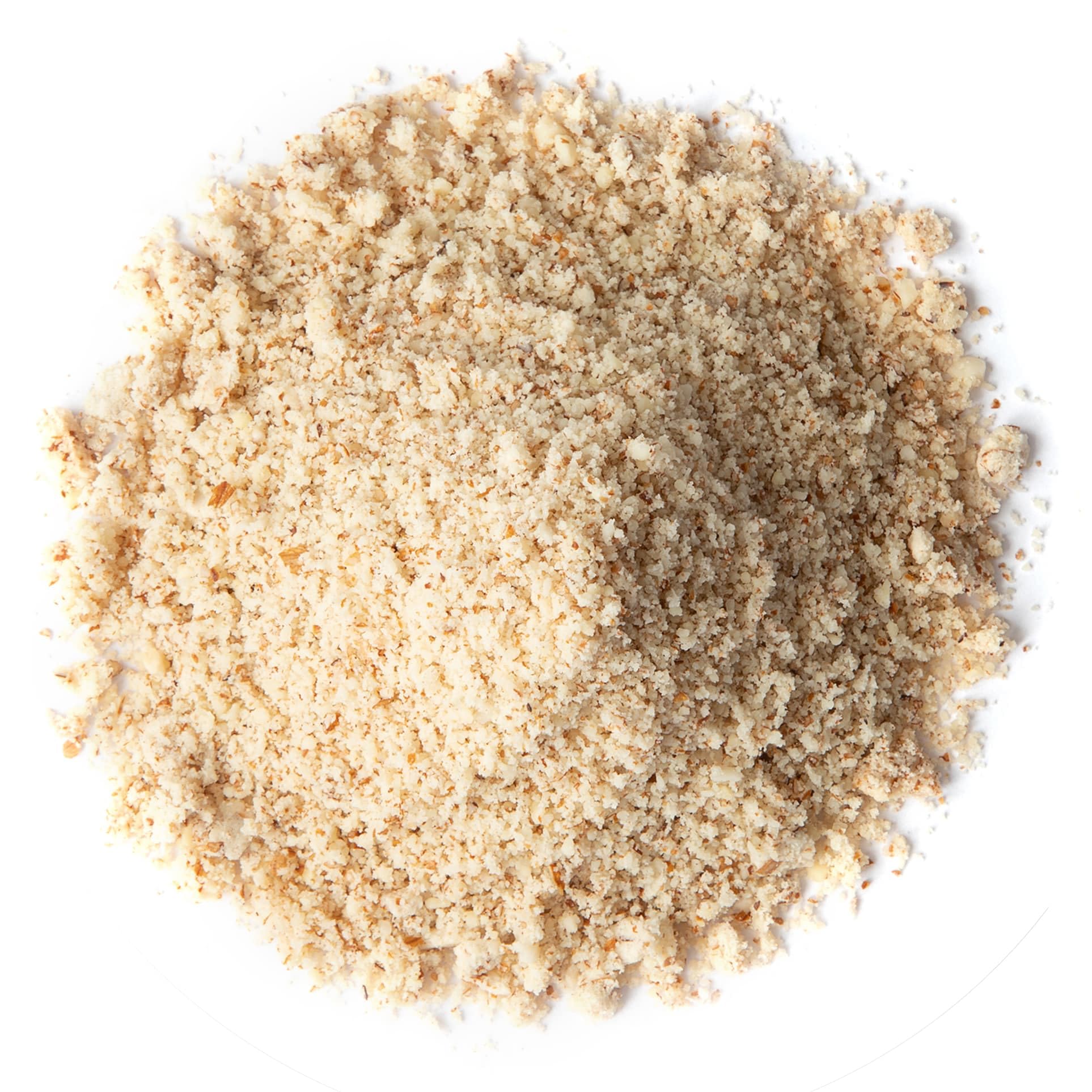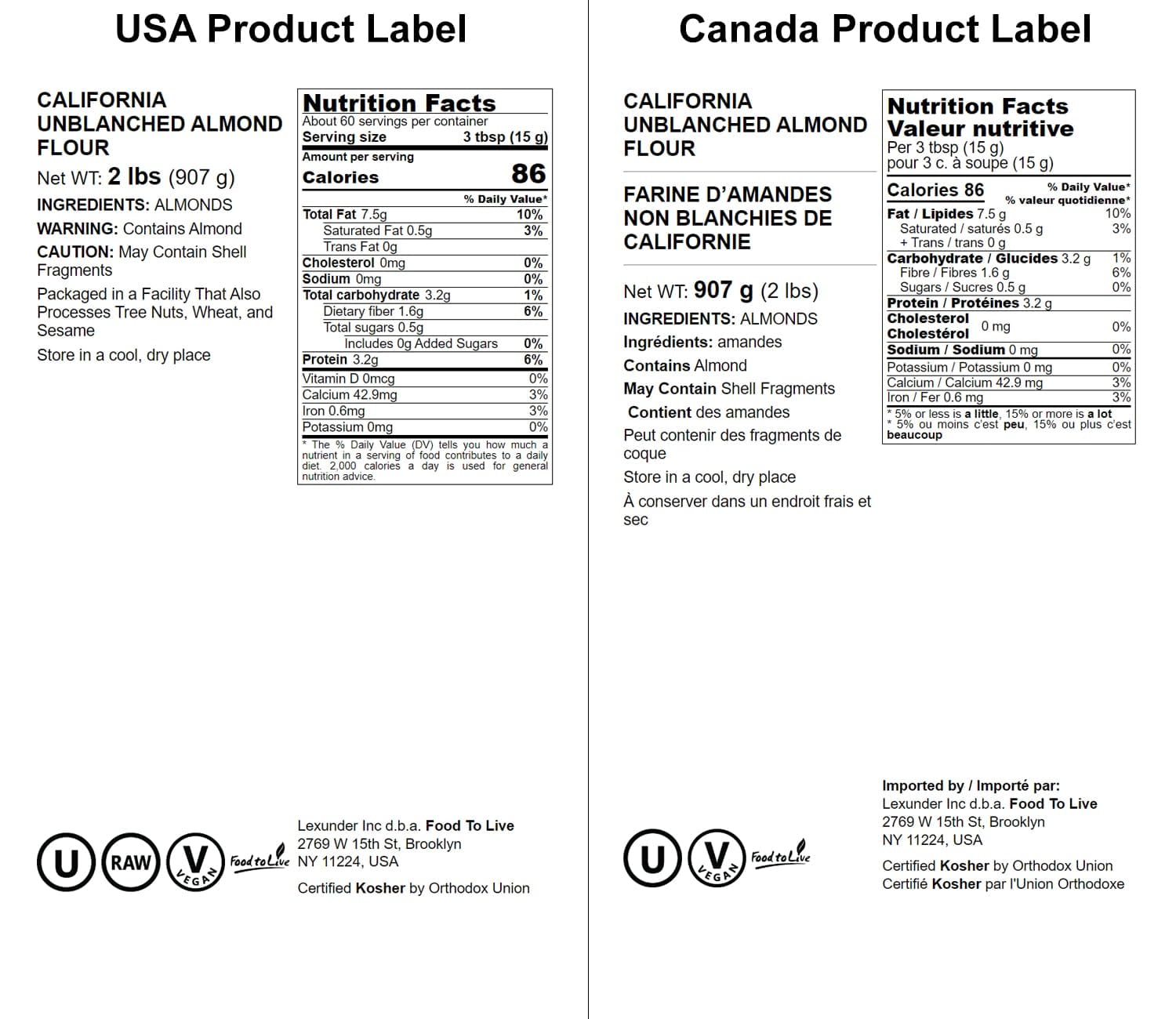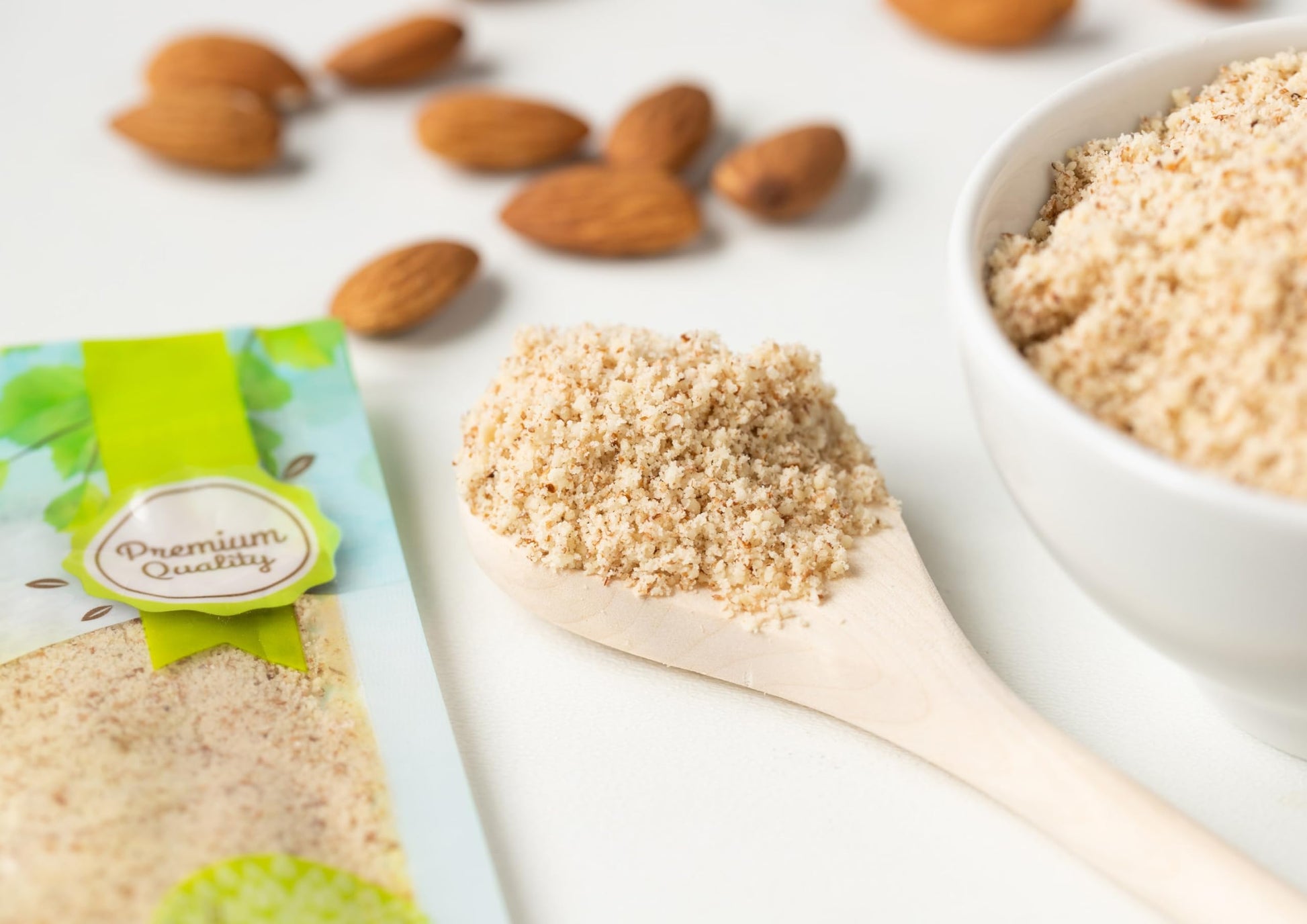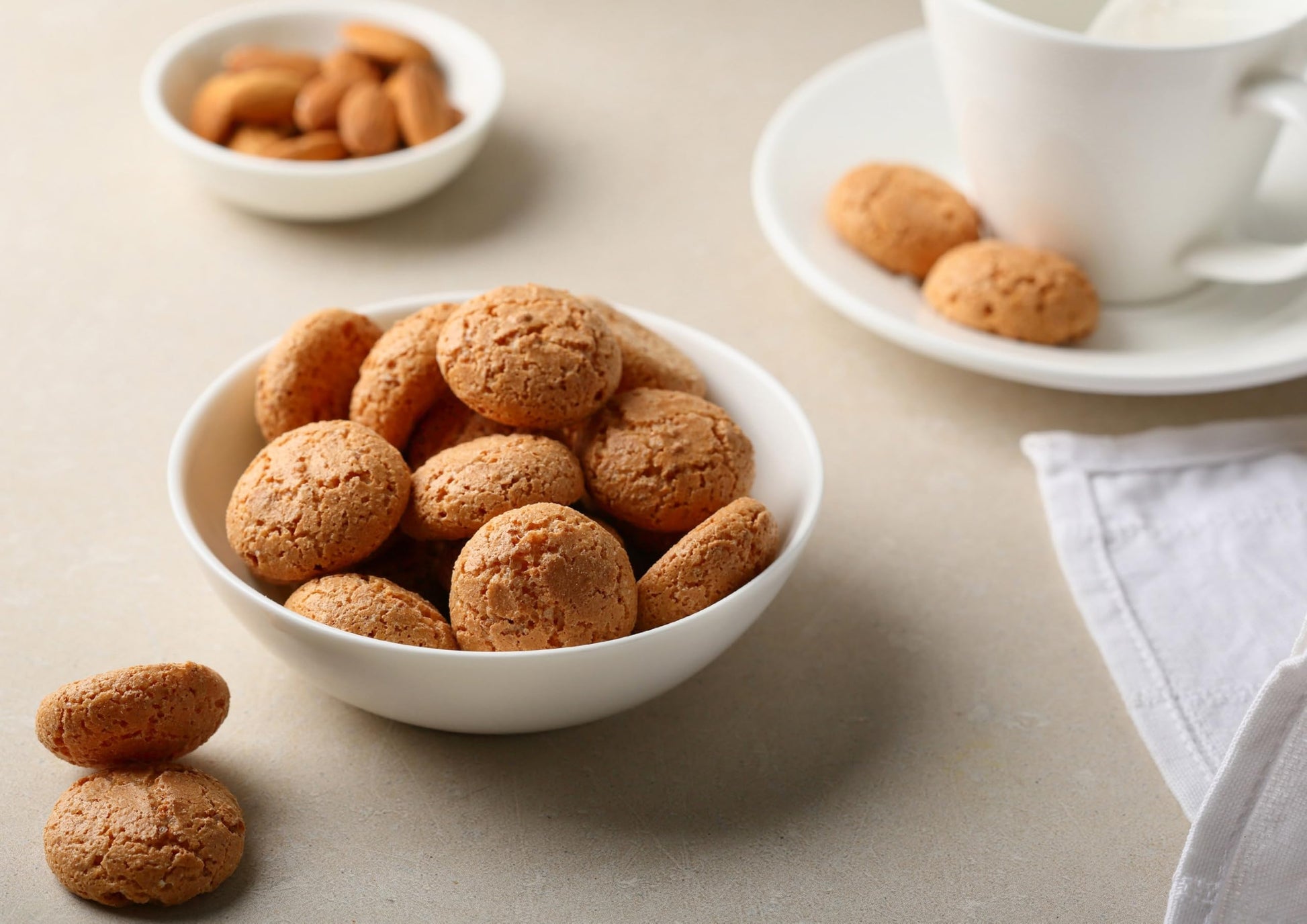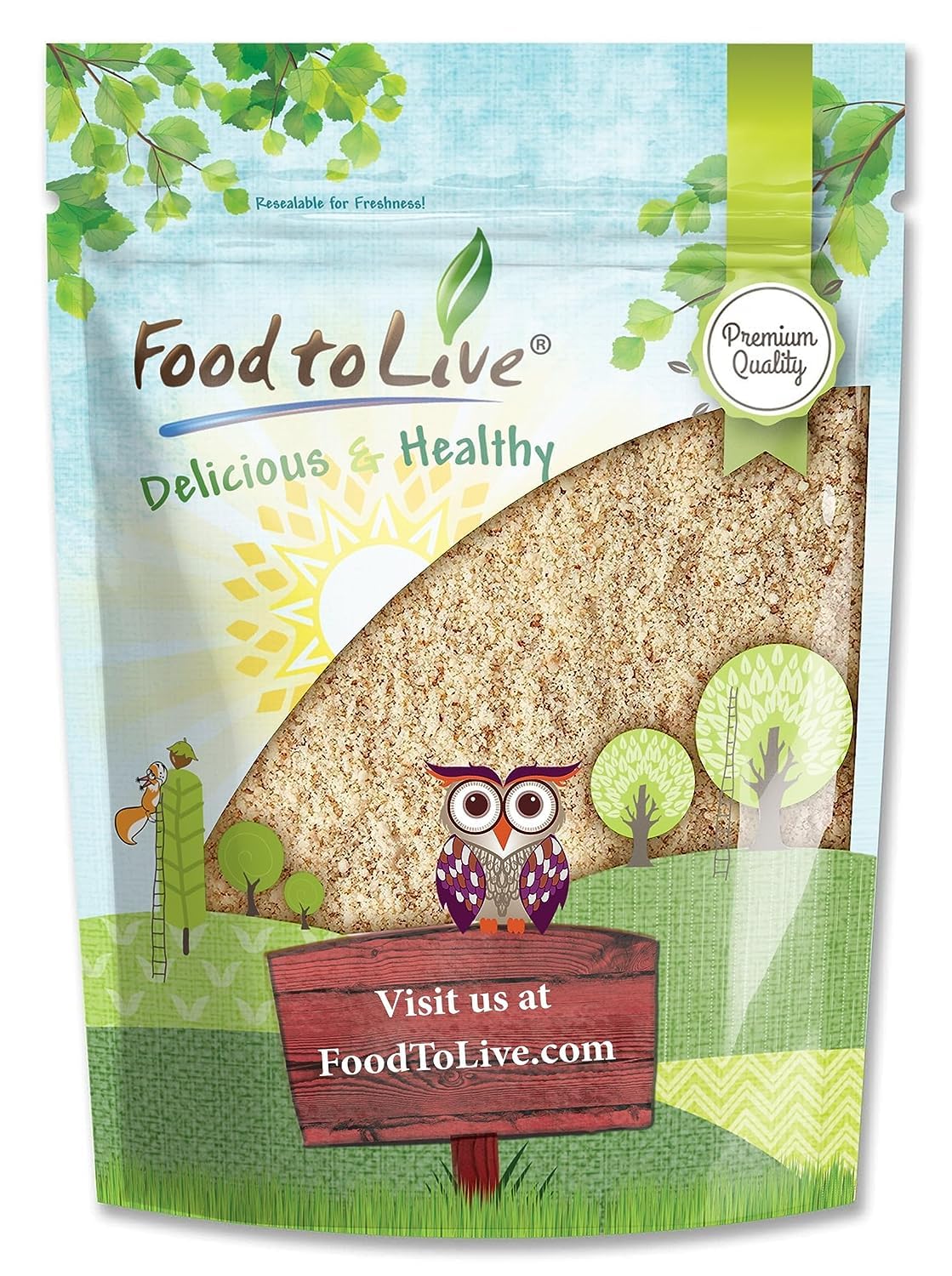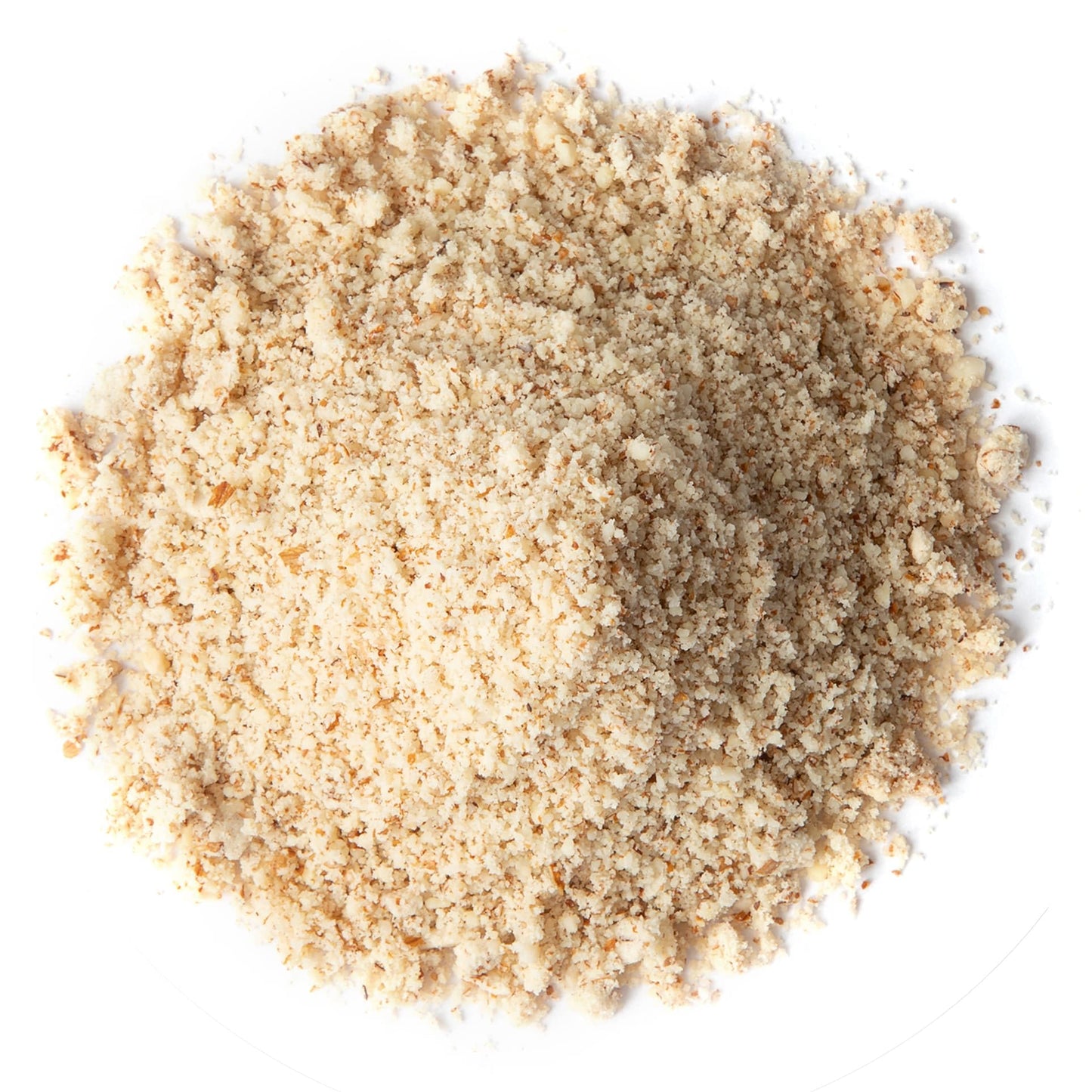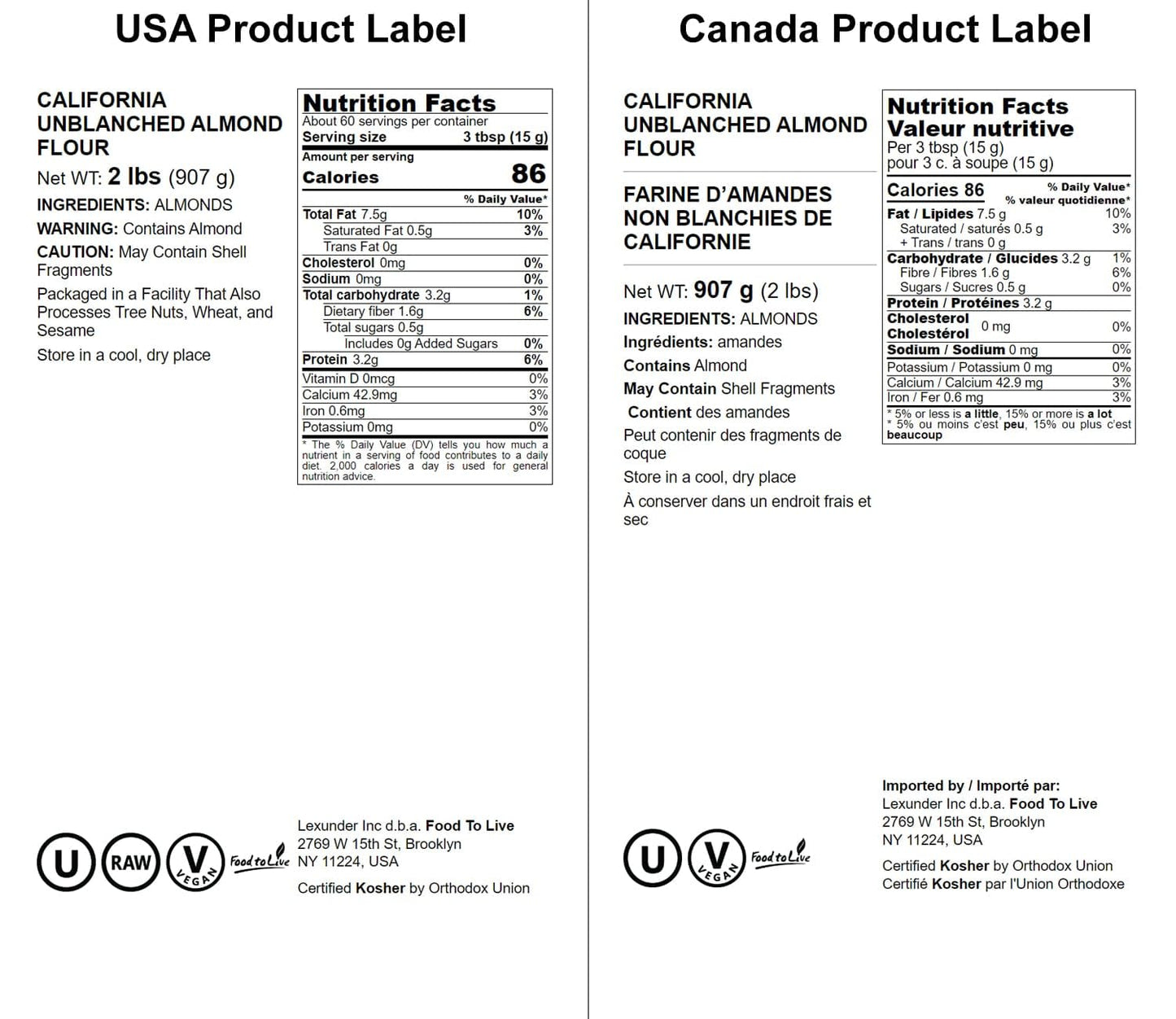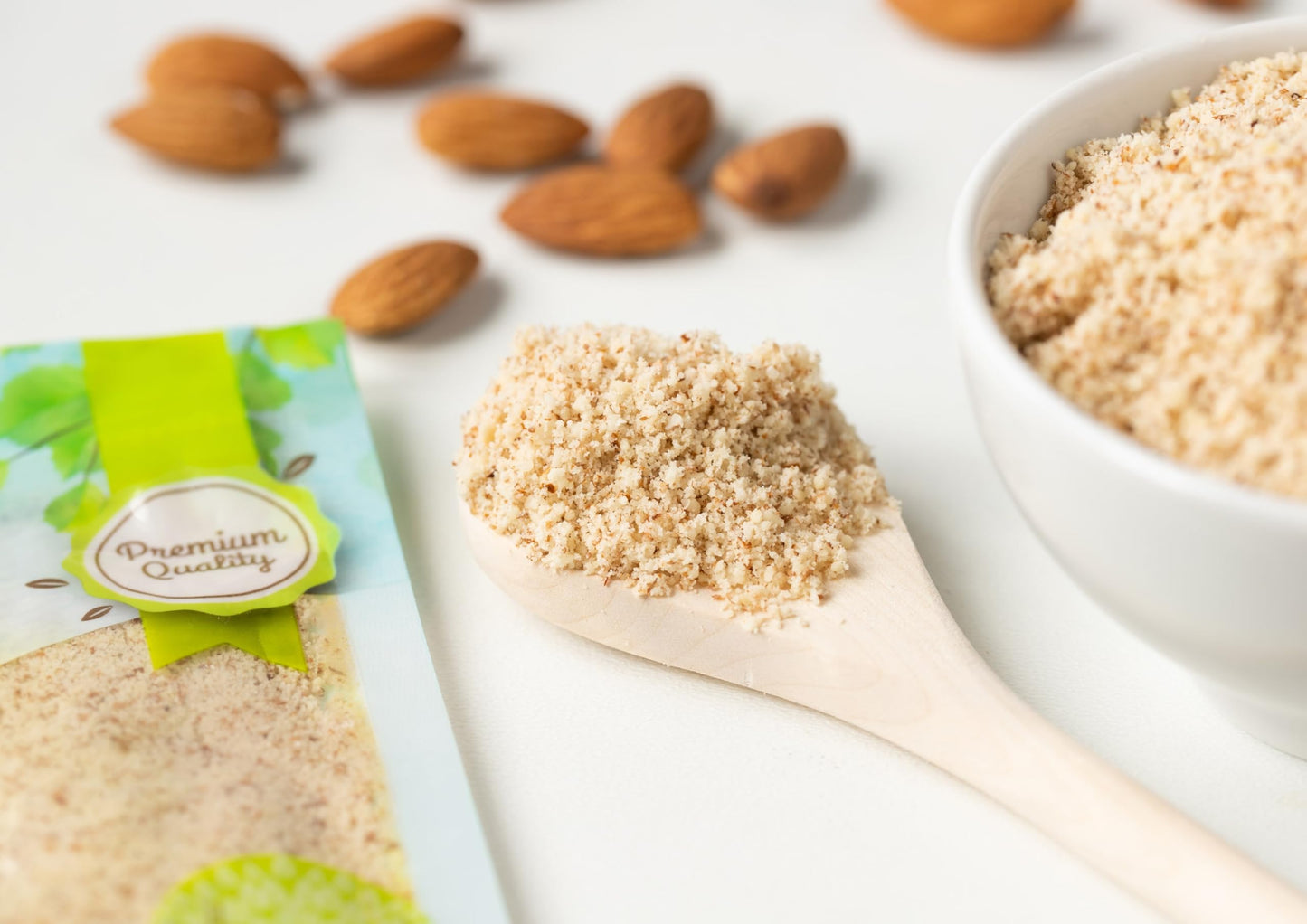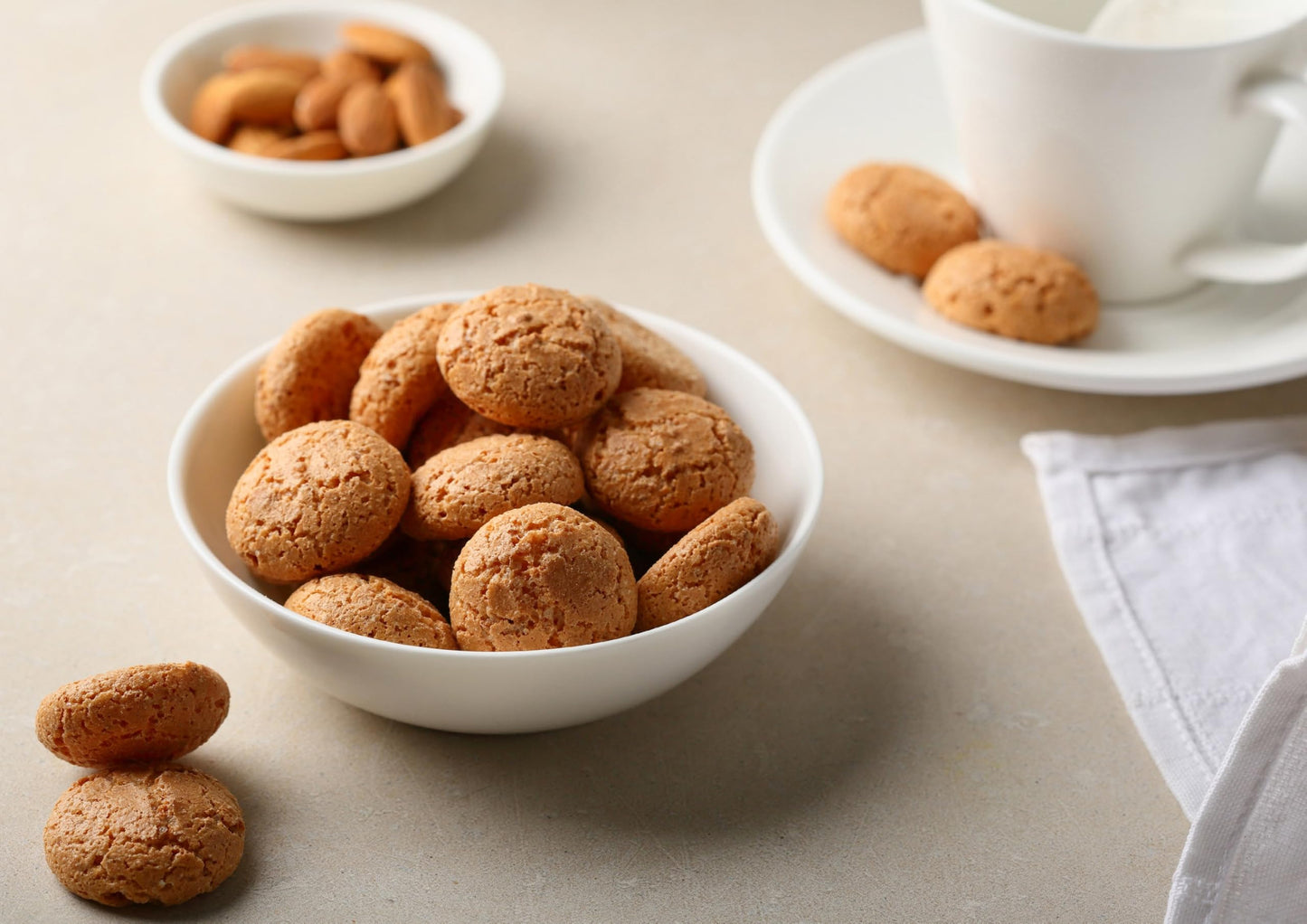You will not be allowed to compare more than 4 products at a time
View compareProduct Description
Nut Flours Are A Great Way To Enrich The Nutritional Value Of Your Usual Recipes And Make Their Flavor That Much More Unique. This California Unblanched Almond Flour By Food To Live Is Amazing For This Purpose. It Is Made From Premium Quality California-Grown Unblanched Almonds. It Is Darker In Color And Contains Brown Specks. The Difference Between Blanched Vs Unblanched Almond Flour, Is That The Latter Is Produced From Whole Almonds With Their Thin Brown Skin On, Hence The Presence Of Specks. However, Both Flours Are Interchangeable In Recipes. This California Almond Flour Unblanched Is Unbleached, Vegan, Kosher, And Contains No Additives. Unblanched Almond Flour Uses Our Unblanched Almond Meal Has A Fine Texture And Pleasant Nutty Flavor That Works Great In Both Sweet And Savory Dishes. So, What Is Unblanched Almond Flour Used For Firstly, For Baked Goodies Like Cookies, Cakes, Pancakes, Pizza Crusts, Flat Bread, And Tarts. Use It As A Partial Or Complete Replacement For Wheat Flour, Or Other Nut Flours Like Cashew, Walnuts, And Macadamia. You Can Also Find Many No-Bake Unblanched Almond Flour Recipes For Nutrition Bars, Energy Balls Or Cheesecakes. Second, Natural Almond Meal Works As A Great Thickener For Custards, Jams, Soups, Dips, And Sauces. If You Are Wondering Can I Use Unblanched Almond Flour For Macarons Yes, Absolutely, Feel Free To Use Unblanched Almond Flour For Baking Macarons With A Nice, Speckled Texture. The Nutritional Value Of Unblanched Almond Flour From California Rich Nutritional Profile Is What Makes Almond Flour Stand Out Among Other Flours. It Is A Powerhouse Of Plant Protein, Dietary Fiber, Good Fats, And Amino Acids. Compared To The Blanched Kind, Unblanched Almond Flour Is A Bit Higher In Some Of Elements Due To The Skin Content. It Is Rich In Vitamin E, Antioxidants, And Essential Minerals Including Iron, Calcium.
Frequently Asked Questions
- Q: What is the difference between blanched and unblanched almond flour? A: Blanched almond flour is made from almonds that have had their skins removed, resulting in a lighter color and smoother texture, while unblanched almond flour is made from whole almonds with the skin on, giving it a darker color and a slightly coarser texture. Both can be used interchangeably in recipes, depending on your preference.
- Q: Can I use unblanched almond flour for baking macarons? A: Yes, unblanched almond flour can be used for baking macarons. It adds a unique speckled texture and provides a rich, nutty flavor that enhances the overall taste of the macarons.
- Q: What are some common uses for unblanched almond flour? A: Unblanched almond flour is versatile and can be used in a variety of recipes, including baked goods like cookies, cakes, pancakes, and pizza crusts. It also works well as a thickener for soups, jams, and sauces, and can be used in no-bake recipes like energy bars and cheesecakes.
- Q: Is unblanched almond flour suitable for Keto and Paleo diets? A: Yes, unblanched almond flour is an excellent choice for both Keto and Paleo diets. It is low in carbohydrates, high in protein and healthy fats, and contains no additives, making it a nutritious alternative to traditional flours.
- Q: What nutritional benefits does unblanched almond flour offer? A: Unblanched almond flour is rich in protein, dietary fiber, healthy fats, and essential vitamins and minerals such as Vitamin E, calcium, iron, and magnesium. Its nutritional profile makes it a great addition to a balanced diet.

